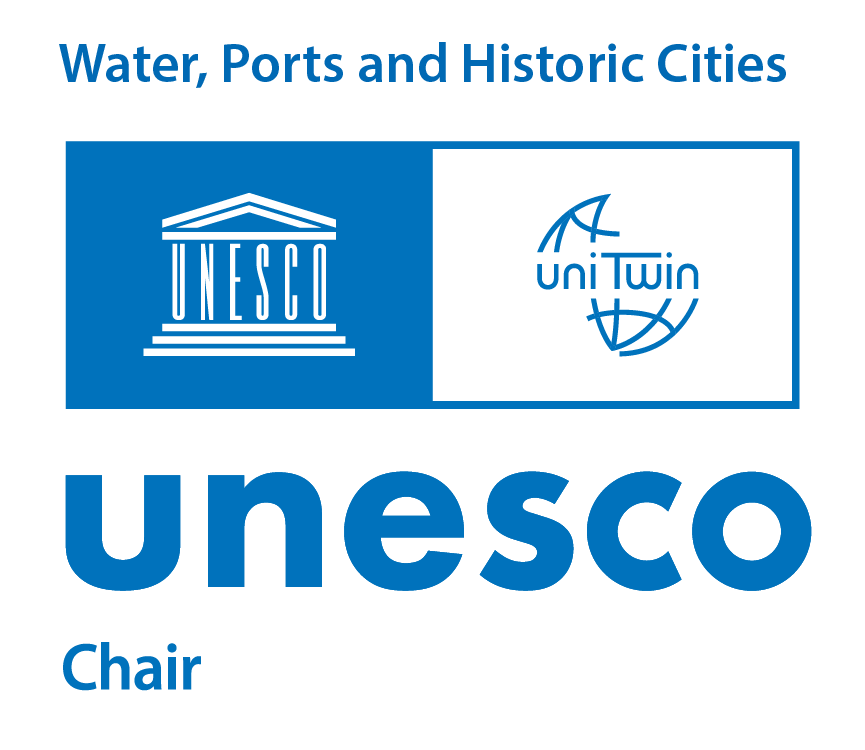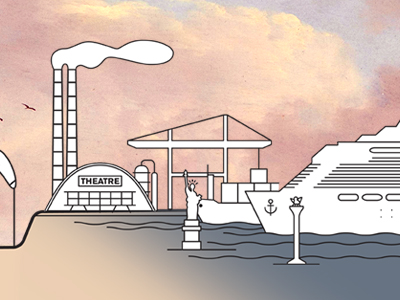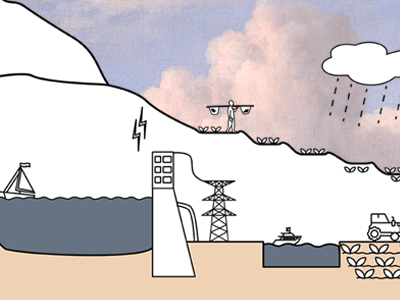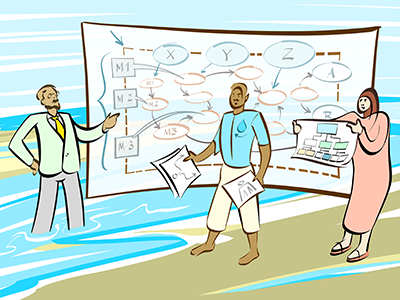Overview
Port city territories offer a unique intersection of urban development, diverse communities, and waterfront environments—whether along the sea or a river—with characteristics unmatched by other cities. With deep connections between water, heritage, infrastructure, and port residents, these cities present both exceptional opportunities for growth and significant challenges. And to achieve this, they need a solid vision!
Their unique attributes are often overlooked today, resulting in innovation and development that neglect their rich heritage. Consequently, this diminishes the city's distinct identity and the potential gains for citizens, businesses, institutions, and the environment. In particular, it leads to missed opportunities for developing human capital and fostering social cohesion.
This 3-day workshop will help you explore a key topic: How can port cities harness their unique characteristics and heritage to develop sustainable urban spaces and foster engaged communities? And at the same time, how can they preserve the essential needs of port-related flows? At its core, this workshop is founded on the belief that port city territories, with their long history of resilience, are paradigms for sustainable development. By shaping the right vision using a value-based approach (and not only economic or technical), we can design strategies for spaces, infrastructures and institutions that facilitate sustainable environments and thriving communities, and will be recognized as valuable heritage 50 or even 100 years into the future.
We invite professionals—architects, urban planners, municipal officials, port managers, policymakers, and cultural practitioners—to engage with real-world examples and work on their own case studies. Through this, we will explore how to activate heritage as a tool for sustainable urban development, rethink water infrastructure for multifunctional use, and design urban spaces that remain relevant for future generations.
How does this approach work in practice?
From the revitalization of the Seine in Paris to the rethinking of port functions in Amsterdam and Rotterdam, urban landscapes around ports are being redefined through multifunctional and sustainable design strategies:
Paris
Paris, in preparation for the Olympics, continued a process of reimagining the Seine as a swimmable river—a radical shift that required a fundamental rethinking of water management. Cleaning the river to the point where people could safely swim meant re-examining shipping routes and practices, sewage systems, and safety protocols. This transformation didn’t happen in isolation; it was enabled by a broader cultural movement that used heritage as a catalyst.
By leveraging its status as a World Heritage Site, the city successfully removed highways along the riverbanks, creating public promenades and making the Seine central to urban life once again. Beyond infrastructure, Paris took an unprecedented step in recognizing the river as a living entity, granting it environmental personhood to engage in the “Seine Trials” and initiate a civic movement around its governance.
Amsterdam
Amsterdam faces a different challenge: the need to reinforce its historic bridges and canals to accommodate modern logistics. But does strengthening them for heavier trucks align with the city’s heritage? Instead of defaulting to car-based solutions, Amsterdam is exploring how waterways—once the primary means of transportation—can be reactivated for urban freight and circular construction. This shift acknowledges that heritage isn't just something to be preserved; it is also a catalyst for future development.
Rotterdam
In Rotterdam, as the port withdraws from the city center, new opportunities emerge to integrate creative industries with maritime heritage; and to develop new concepts for multi-functional ports – that are integrated into neighbourhoods. Since the future is uncertain, we need long-term strategies that ensure resilience to gain buy-in from citizens, businesses, institutions and government.
The challenge is not simply filling abandoned spaces with temporary cultural projects but fostering long-term economic and social ecosystems. Can the port’s next generation of entrepreneurs, designers, and craftspeople shape its future in ways that are both economically viable and deeply connected to the city's identity?
What You'll Learn
- Identify the local and global challenges of planning for port city territories.
- Understand the role of shared goals and values to find overlapping needs and potentialities in port city territories.
- Apply novel tools and methods for the analysis and planning of futureproof port city territories based on shared values.
- Think about what it takes to communicate these findings to diverse stakeholders.
- Imagine a future agenda for your port city and devise the steps needed to get there.
Check the Details tab for the workshop and field trips plan.
This course is brought to you by

Details
Workshop Plan
This three-day workshop at TU Delft Campus The Hague, featuring field trips to Rotterdam and Scheveningen, provides practical tools related to a value-based approach (such as stakeholder mapping, value timelines, spatial analysis) to help you create a vision for port city territories. These tools do not lead to one-size-fits-all solutions but rather guide a dynamic process. This process involves diverse stakeholders and leads to an understanding of the values surrounding the port city, and concludes in a shared vision and mission. The results of these can then inform a range of actions, from urban planning to municipal initiatives and cultural activities.
This dynamic and highly interactive workshop incorporates team-based exercises, brainstorming sessions, discussions, and other engaging training techniques. It offers fresh perspectives, even for those with extensive experience in port and water management, challenging conventional approaches while fostering new ways of thinking.
Day 1 (Tuesday, September 2)
introduces key terms and concepts related to port city territories, exploring new methods and tools through in-person presentations on harnessing value across stakeholders. The day also includes a field trip to Rotterdam, offering a hands-on workshop that delves into the challenges and potentials of port city territories. The day concludes with a dinner.
Day 2 (Wednesday, September 3)
focuses on the use of toolboxes to address multi-stakeholder dynamics to find a shared vision. Workshops, led by professionals, will engage participants in their chosen case studies. A field trip to Scheveningen will provide an opportunity to interact with local stakeholders and gain insights into their perspectives on the port’s agenda.
Day 3 (Thursday, September 4)
will take place on campus, where participants will synthesize key insights from the previous days by mapping their findings onto a timeline that connects past learnings to future strategies. Each participant will transform their vision into a concrete, actionable mission, with the option to develop a custom impact assessment for ongoing evaluation. This day marks the conclusion of the workshop and the transition to World Port Days for those who wish to prolong their stay.
(workshop fee includes lunch, field trips transportation and group dinner at the end of the first day)
Complementary material: Video materials and additional readings and resources will be made available one week before the workshop starts on an online platform.
Final assignment: During the workshop, you will explore various methodologies to understand the spatial, social, and cultural context of your case study. Based on your findings, you will develop a clear vision and mission, which you will then shape into a concrete plan with measurable indicators to assess its feasibility. You will have two weeks to refine and submit this plan for assessment. Feedback will be provided by the course instructors. Completing and submitting the assignment is mandatory in order to receive the course certificate.
Qualifications
Certificates and CEUs
Professional education course with verified certificate.
The TU Delft Extension School offers Continuing Education Units for this course. Participants who successfully complete the course requirements will earn a Certificate of Completion and are eligible to receive 3.0 Continuing Education Units (CEUs).
Admission
No formal prerequisites apply to join this workshop. Work experience and/or knowledge of issues related to waterfronts may assist in putting the content into perspective.
Contact
If you have any questions about this course or the TU Delft online learning environment, please visit our Help & Support page.



